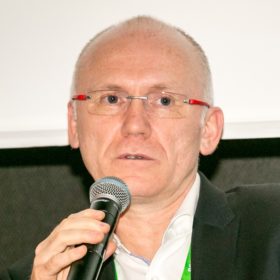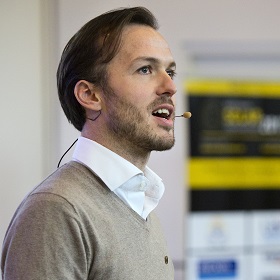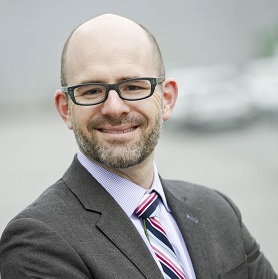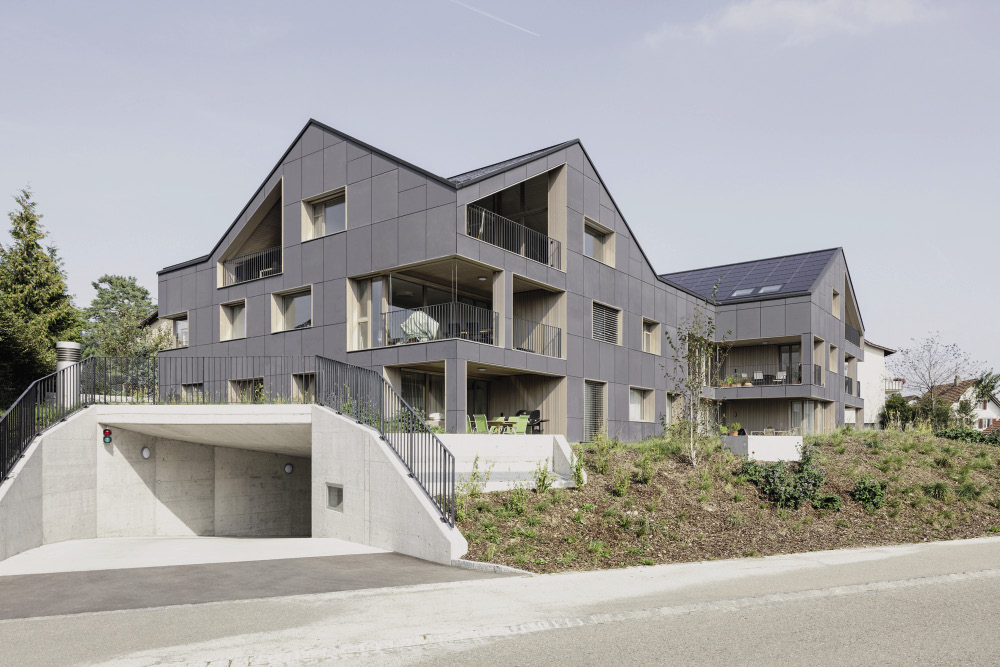With Energy Storage Europe in Düsseldorf less than four weeks away, pv magazine tasked a jury of experts with assessing energy storage products, innovations and use cases that are key drivers for the industry.
During the weeks before the show opens, on March 12, we will showcase the top ten products and innovations selected by our jury – starting today with number ten. The full ranking will be published in the pv magazine energy + storage special issue 2019. The publication has been created with the Messe Düsseldorf conference venue. A public award ceremony for the Energy Storage Technology Highlights will be held at Energy Storage EuropeDüsseldorf on March 13, and we are looking forward to seeing you there from 10 am at the ESE Forum, in Hall 8b.
#10 Proton Motor
Fuel cell provides real year-round self-sufficiency
Proton Motor delivered its hydrogen fuel cell to the world’s first entirely self-sufficient multi-family home, in Brütten, Switzerland in summer 2016. The electrolyzer uses 14.5 kW to produce 2 Nm³/h of hydrogen. In total, the system can hold 120,000 l of hydrogen.
Proton Motor’s fuel cell produces 6.2 kW of electrical and 5.5 kW of thermal power. Electricity is transferred to the battery systems using the fuel cell’s integrated power electronics. The heat is dissipated to heat pumps for space and water heating.
Project leader Umwelt Arena Schweiz says using excess heat from electricity production enables efficiencies of more than 90% in winter months. During summer, when heating is reduced or not needed, efficiency is 18-19%.
A 79 kW rooftop PV system powers the house, alongside a 46 kW thin film PV system mounted on its facades, totaling 126 kW – 90,000-105,000 kWh per year, for the nine families living there.
The building’s energy consumption was 2,200 kWh per housing unit per year, about half the Swiss average. The company says its system survived its first winter even though it was the coldest in the region for 30 years, and featured the fewest hours of sunshine for 20 years.
The building features an array of energy storage technologies including battery storage, a hydrogen electrolyzer and a hydrogen tank, as well as a long-term thermal storage tank. The combination of long and short-term storage systems enables permanent energy supply, without the need for an electrical grid or gas supply.
The project was supported with public funding and, according to the project leader, demonstrates the technical feasibility of a solution that becomes increasingly viable at larger scales. When increasing the production numbers, the cost for the electrolyzer would fall 75%. The cost target was hydrogen production for €2-3/kg.
Each tenant receives an energy budget in their rent. When that is exceeded they incur a fee – staying below budget brings a financial reward. According to project leader Umwelt Arena Schweiz, the rent for the building is at the higher end of the scale for the region.
Jury comments
Rolf Heynen: “These sort of pilots go far beyond 60% or 70% autarky [energy independence], and therefore they contribute more to the learning curve on the system side.”
Xavier Daval: “The usage of multiple storage and renewable technologies is interesting.”
Proton Motor can be found at booth 8BG28 at the show.
The jury
Xavier Daval
Popular content

Daval is an international solar and storage expert as well as CEO of French solar technical advisory firm kiloWattsol SAS, which he founded in 2007. He is an electrical engineer and former director for the EMEA region for an NYSE-listed manufacturer of tools for the electronics industry. He is also VP of French renewable energy association Syndicat des Energies Renouvelables, chair of its solar commission and director of the Global Solar Council.
Logan Goldie-Scot

Goldie-Scot heads the energy storage insight team at BloombergNEF. He leads the company’s analysis on the global energy storage markets, providing insights on technology, markets, policies and regulation, as well as the competitive landscape. He also oversees the company’s analysis of supply chains.
Rolf Heynen

Heynen is director of Good! New Energy. Good! is known for the annual Dutch Solar Trend Report – also published in English – the Solar Quarterly, the Solar Solutions international trade fair and the Solar Business Day conference. Good! is also active in renewable heating, smart lighting and buildings, energy storage, consulting, energy modelling and market research. Heynen holds degrees in electrical engineering and political science.
Mark Higgins

Higgins is chief operating officer of Strategen, a professional services firm focused on market development for a decarbonized grid. His broad energy sector experience before Strategen included serving as director of utility west at SunEdison, VP of finance for Hu Honua Bioenergy, and as Pacific Gas & Electric’s lead in key policy areas including interconnection and transmission planning.
Julian Jansen

Jansen is a research manager at IHS Markit Technology. He leads the group’s global research on stationary energy storage and provides insight on the key value drivers and emerging business models accelerating storage deployment across Europe and North America. Jansen also delivers strategic advice for bespoke projects featuring new energy technologies.
Florian Mayr

Mayr is a partner at Apricum and head of its energy storage, digital energy and green mobility practices. He is an expert in strategy, business development and transaction advisory in global renewable energy markets. Mayr advises cleantech companies on corporate and project financing. Before Apricum, he spent eight years in senior positions at McKinsey & Company and RWE.
This content is protected by copyright and may not be reused. If you want to cooperate with us and would like to reuse some of our content, please contact: editors@pv-magazine.com.



By submitting this form you agree to pv magazine using your data for the purposes of publishing your comment.
Your personal data will only be disclosed or otherwise transmitted to third parties for the purposes of spam filtering or if this is necessary for technical maintenance of the website. Any other transfer to third parties will not take place unless this is justified on the basis of applicable data protection regulations or if pv magazine is legally obliged to do so.
You may revoke this consent at any time with effect for the future, in which case your personal data will be deleted immediately. Otherwise, your data will be deleted if pv magazine has processed your request or the purpose of data storage is fulfilled.
Further information on data privacy can be found in our Data Protection Policy.